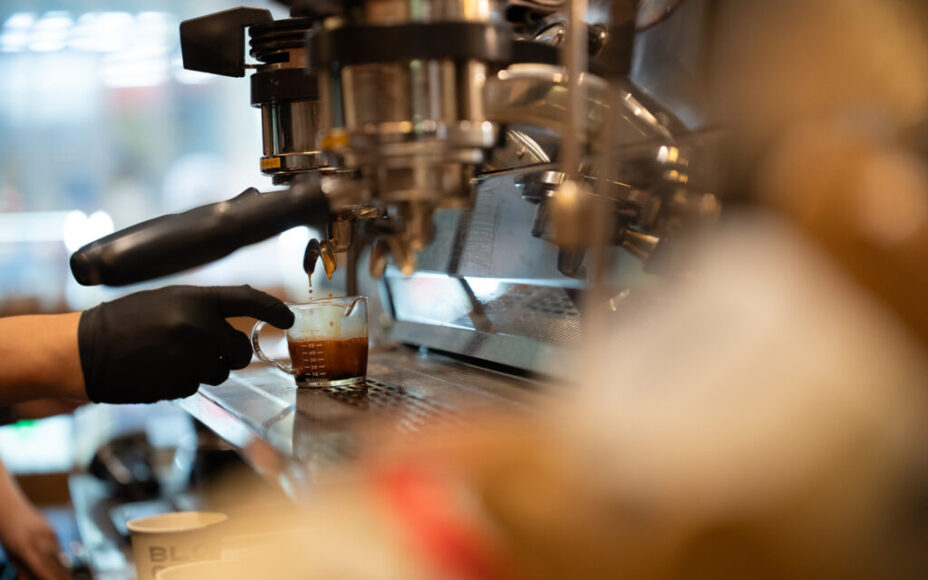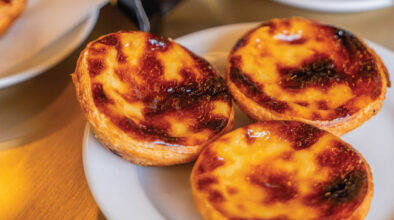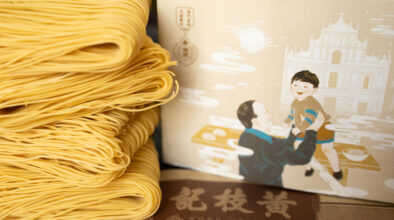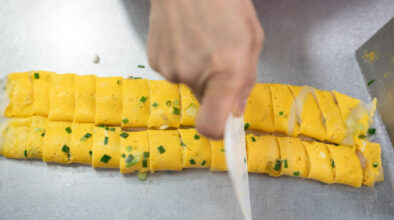Café culture in Macao is different to that of the West, where specialty coffee shops have been delivering people’s caffeine fixes for decades.
As part of China, Macao tends to share the country’s enduring love affair with tea. When it comes to coffee, it’s the cha chaan teng, a Hong Kong-style diner blending Cantonese and British influences, that has traditionally set the tone. These establishments are known for serving up instant coffee, its bitterness offset by condensed or evaporated milk. An even more localised option is the yuenyeung, a mixture of instant coffee and milk tea. Affordable and fuss-free, both drinks are part of Macao’s daily life – but far from the single-origin pour-over brewed at precisely 93 degrees Celsius found in Melbourne or New York.
This is starting to change. Over the past 10 years, a new generation of café owners has slowly been introducing Macao to a specialty coffee experience defined by carefully sourced arabica beans (typically roasted in house) and prepared by meticulous baristas. These entrepreneurial artisans have added a layer focused on precision, provenance and taste to the city’s café scene.
Residents who’ve lived in Macao over this period speak to the proliferation of trendy specialty coffee shops they’ve seen pop up around the city. Trade data is also telling. In 2014, the Special Administrative Region imported just under 400 tonnes of unroasted coffee. That figure grew by 55.6 percent over the next five years. Fast forward to 2024, and Macao imported almost 770 tonnes of the beans – testament to strong growth in demand.
It’s worth noting that many new specialty coffee ventures have received help from the government’s Commerce and Investment Promotion Institute, formerly the Macao Trade and Investment Promotion Institute, as well as support schemes for young entrepreneurs and small businesses.
Caffeine and community: Blooom Coffee House
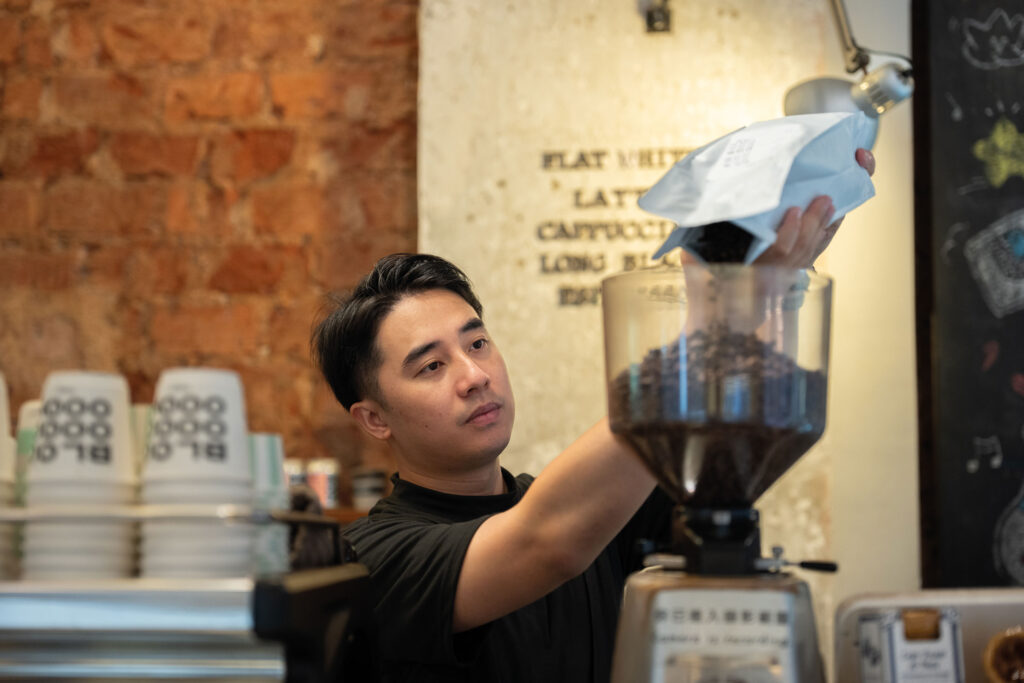
When Blooom Coffee House opened its first store in 2012, in the Bairro Horta da Mitra district of Macao Peninsula, the area was dominated by old-school cha chaan tengs. Specialty coffee was a novelty then, and Blooom’s manager Kenny Chan says it was hard to convince locals of its merits. Accustomed to instant coffee, many were skeptical of Western-style drinks like the Americano and latte, not to mention higher prices resulting from quality ingredients and well-trained staff.
These obstacles made Blooom a true pioneer. Its team slowly built up a loyal customer base that’s contributed to a cultural shift among the city’s younger residents (most of the café’s visitors are aged between 20 and 40). Blooom’s successful formula is evidenced by the fact it now operates 11 coffee shops across Macao. Since 2022, the combined amount of coffee beans these establishments go through each month has risen by about a quarter.
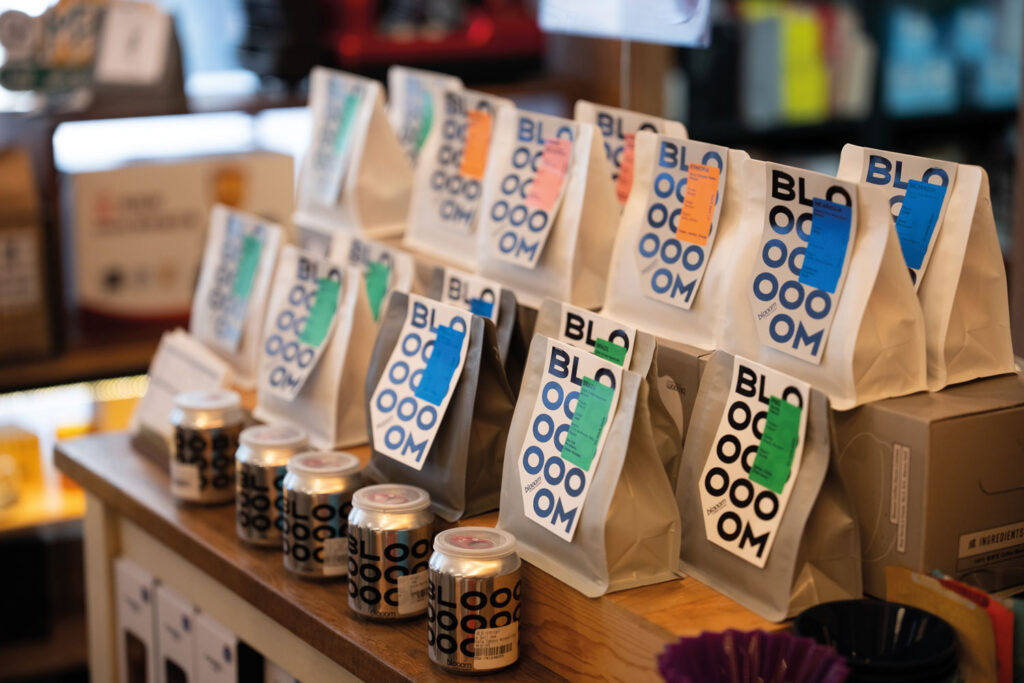
Chan, in his late 20s and now a co-owner of Blooom, tells Macao magazine that local tastes have changed most noticeably in the past four years. People used to be content with something “bitter and strong”, the characteristics of cheap robusta beans used in instant coffee powder, he says. Today, many customers are genuinely interested in exploring more nuanced flavour profiles and different brewing techniques. They seek a complex bouquet of sweetness and acidity, floral aromas and citrusy notes that – like wine – is heavily influenced by terroir.
Specialty coffee connoisseurs around the world see their ‘cup of joe’ as more than a caffeine hit. They want to know its story; hence the appeal of single-origin coffee beans traceable to a specific farm in, say, the Brazilian state of Minas Gerais. They also appreciate the human side of coffee consumption, something Blooom’s staffers are acutely aware of. “The connection between customers and us is important,” Chan says. “A barista serves as a bridge in the machine age, when many things are automated.” Speaking at Blooom’s flagship café in Horta da Mitra, Chan points out design choices that encourage conversations, like a welcoming conter space.
While the Americano (a double shot espresso diluted with hot water) is the standard order at Blooom, the café’s selection of ‘dirties’ is also popular. Dirty coffee is a relatively new trend, developed in Asia, in which a hot shot of espresso is poured over cold milk. The two liquids merge slowly, creating a layered, almost marbled effect that’s best appreciated in a glass. The drinker’s palate receives pleasing contrasts of hot and cold, tart and creamy.
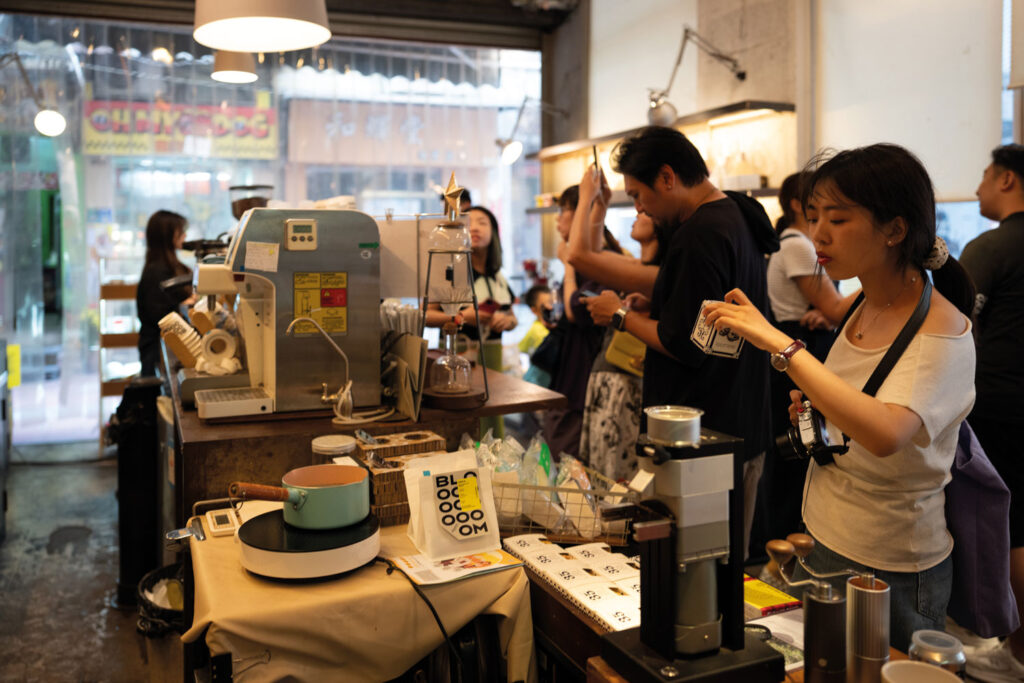
Blooom adds a Macao twist to some of its dirties with flavours like apricot kernel, egg tart and local fruits. Chan recommends one made using milk tea infused with lychee flesh as the base, a concoction he describes as “true cultural fusion” (and reminiscent of that cha chaan teng favourite, the yuenyeung). Some customers prefer to stir their dirty, others embrace the layers. Either way, Chan describes drinking one as an experience.
The café also caters to those eager to continue their coffee journey at home. It sells a vast array of coffee-making paraphernalia, from the basic French press to sophisticated goose-neck kettles. Bags of whole and ground beans sourced from Brazil, Kenya, Peru and Timor-Leste are on offer, as are Macao-themed souvenirs for coffee lovers. Blooom believes in partnering with fellow local businesses, giving rise to a coffee-flavoured chocolate bar made in collaboration with Gourmet House Macau and egg tart-shaped coffee cups from Portugal, sourced with the bookshop Livraria Portuguesa.
Get curious: Asylum Coffee Roasters
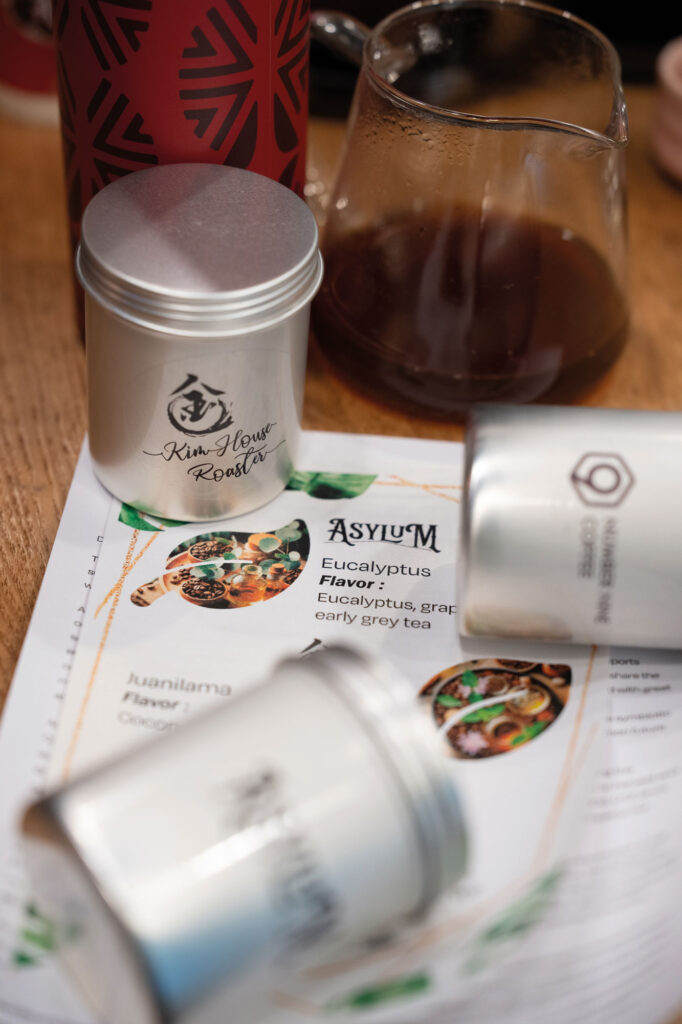
In the historic São Lourenço district, another young entrepreneur is riding the specialty coffee wave. Carsun Ho, in his 20s, co-founded Asylum Coffee Roasters (originally branded as Fogei Coffee Roasters) with his now-wife and a friend in 2022. Asylum is located just off Rua da Praia do Manduco, near where Ho grew up. Creating a welcoming space for locals and visitors to mingle was a big motivator for the café, Ho tells Macao magazine. Like Chan, he sees good coffee as a bonding mechanism: “To me, coffee is more than a tangible product. It connects people,” he says.
Ho’s interest in coffee started in high school, while working as an apprentice barista. After moving to Taiwan to further his education, this interest became a passion and then a business. While studying at Taipei’s Shih Hsin University, Ho set up a society for fellow coffee lovers. After graduating, he opened two coffee shops with his classmates in the city, where they roasted and sold their own beans. One of these is still running today.
Returning to Macao in the early 2020s, the entrepreneur opened Asylum beside his dad’s hair salon. The café is compact, cool and clearly serious about its craft. At the counter, tarot-style cards describe house blends. ‘The Sun’, with beans from Ethiopia’s Yirgacheffe and Sidama regions, has “energising” notes of tropical fruit. ‘The Emperor’, meanwhile, uses three types of Brazilian bean for a strong-bodied brew delivering “rich chocolate front notes … and a slightly smoky finish”. ‘The Hermit’ blend combines beans from Colombia, Guatemala, Nicaragua and Indonesia for coffee suggestive of nuts, floral aromas and cocoa.
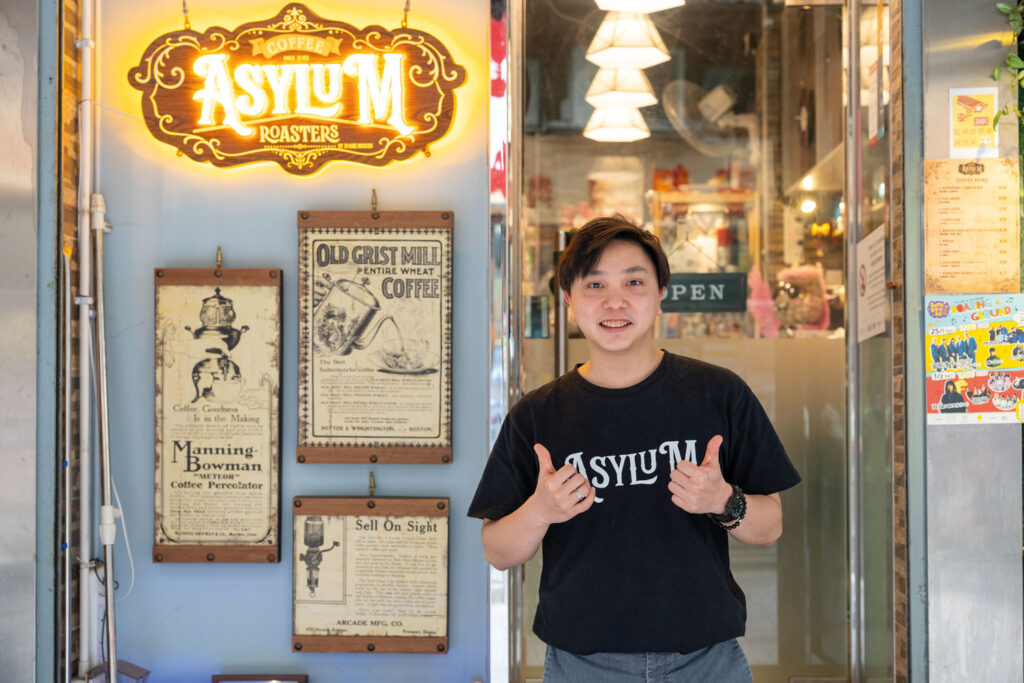
Most of Asylum’s beans are roasted either here in Macao or at Ho’s other coffee shop in Taipei, and both businesses prioritise sustainable sourcing. A big part of Ho’s approach in the industry is to support farmers who look after their land. “I think bringing up environmental issues in Macao is important, even if awareness around these subjects isn’t that mainstream here yet,” he says.
Ho also wants to challenge the perception that specialty coffee is elitist, or too high-brow for the average person. His advice? Get curious. Think of it as a whole different experience to that cup of instant alongside your plate of spaghetti. “Many locals in this area have drunk a lot of coffee. Some started appreciating coffee even before I was born. Today, I am not rejecting their taste, but introducing possibilities,” he explains.
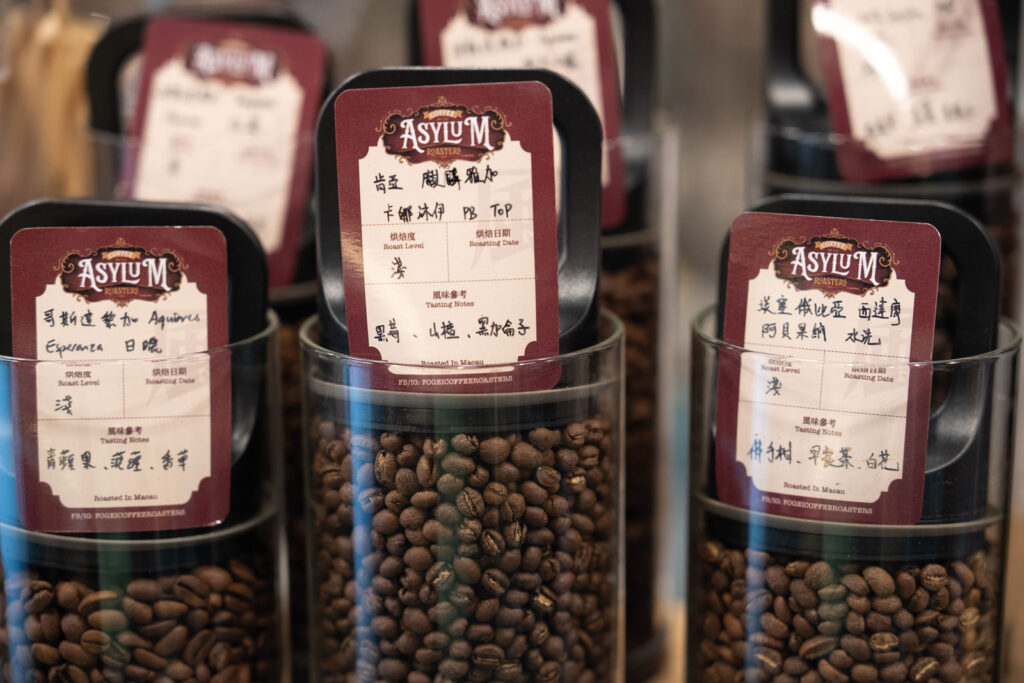
That, of course, is the essence of Macao’s culture: always evolving, layering new influences onto the familiar. Whether in coffee, cuisine or another field entirely, there is always room for new flavours and a little experimentation.
